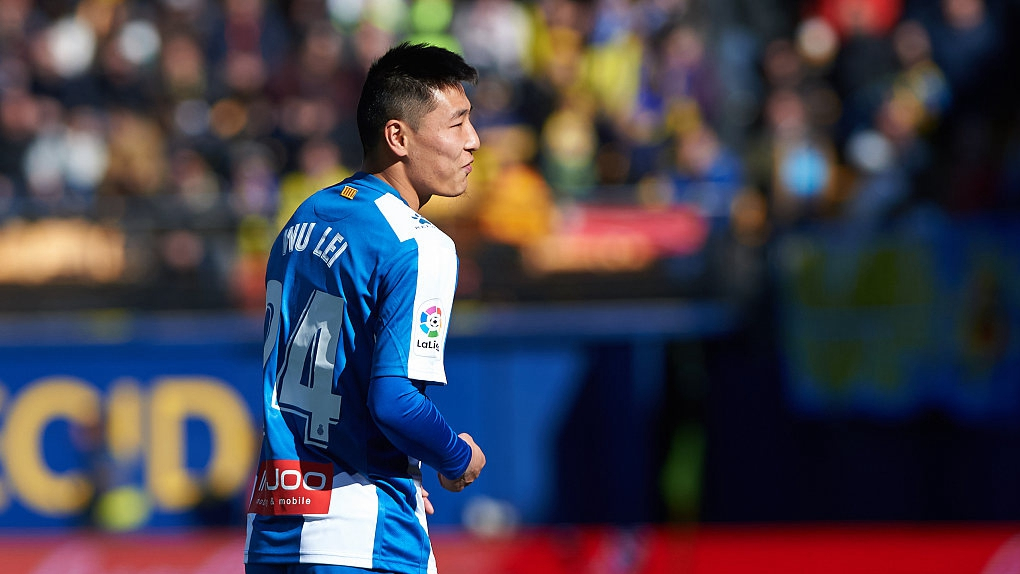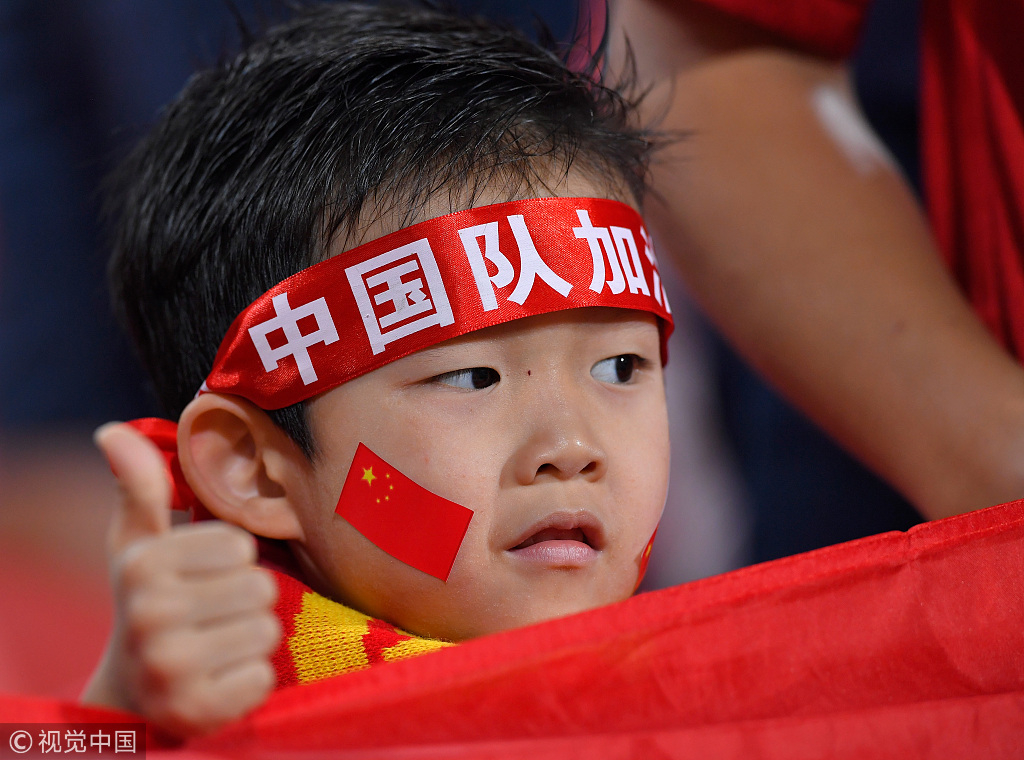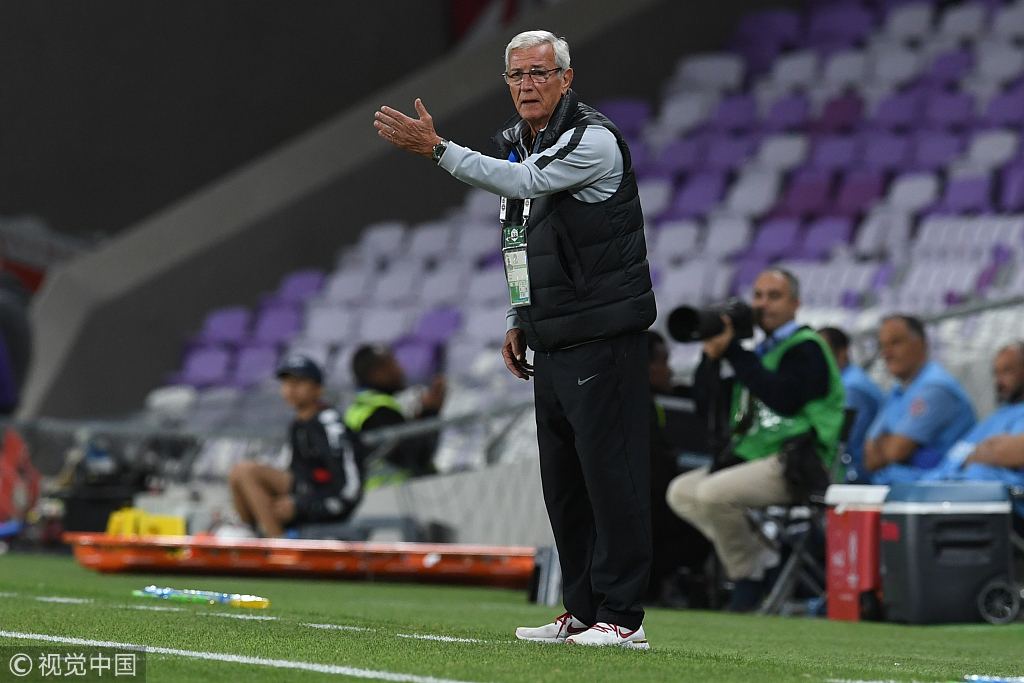
Opinion
16:16, 04-Feb-2019
Opinion: Widening of talent pool offers Chinese soccer hope
David Lee

Editor's note: David Lee is a consultant, author, and contributor based in Beijing who works on cross-cutting themes of energy, health, international politics, and international development. The article reflects the author's opinion, and not necessarily the views of CGTN.
Chinese international Wu Lei made his debut with Spanish La Liga team Espanyol on February 3. Lasting 12 minutes in total and offering few memorable highlights, Wu's appearance as a substitute nevertheless has offered a glimmer of hope to the miserable Chinese soccer scene at the start of the Year of the Pig, a Chinese zodiac sign usually associated with good luck and prosperity.
I do hope that Wu's La Liga adventure will help turn the tide for soccer in China. The significance of the 27-year-old actually playing soccer for a La Liga team cannot be underestimated, if we put in perspective the fact that, before Wu, it had been more than three years since any Chinese player appeared in a top European soccer league. Although several Chinese players signed into top European leagues, the contracts were more in the nature of advertising stunts than serious sports.
Indeed, Wu's contract has also excited Chinese fans, but his appearance in a La Liga match only days after the signing suggested that, this time around, there might just be more soccer than business involved.
If competing in top European leagues is any indication of national soccer strength, the sorry state of the national team is no surprise. China had failed to qualify for all World Cup final stage competitions since 2002. In recent years, even with Italian legend Marcello Lippi as head coach, the national team has continued to fail to impress. China's lukewarm performance at the Asian Cup in January proved Lippi's magic simply wouldn't work with a team of mediocre players, and that ended the Italian's tenure.

A young boy from China looks on from the crowd prior to kick-off during the AFC Asian Cup quarterfinal match between China and Iran at Mohammed Bin Zayed Stadium in Abu Dhabi, United Arab Emirates, January 24, 2019. /VCG Photo
A young boy from China looks on from the crowd prior to kick-off during the AFC Asian Cup quarterfinal match between China and Iran at Mohammed Bin Zayed Stadium in Abu Dhabi, United Arab Emirates, January 24, 2019. /VCG Photo
As the old Chinese saying goes, adversity leads to the desire for change. Before, policy change affecting the national team had mainly occurred in the form of soccer styles, and China had experienced a medley of German, Serbian, Brazilian, French, Spanish, and Italian flavors at national and club levels. In the name of helping young Chinese players grow by playing more games, one of the most controversial policies involves arbitrarily deciding on under-23 player appearances in the Chinese Super League games (clubs field the same number of under-23 Chinese as foreign players in each game), something never seen in any other professional soccer league in the world.
At least for now, regulators' agitation for change hasn't produced any concrete result. In the Year of the Pig, even more dramatic change may take place at both national and club levels. The national team will have to find Lippi's successor. Wild rumors have surfaced that the national team might compete in the Chinese Super League through some very weird arrangement, something that could do huge harm to professional soccer.
Despite the concern that change may well make things even worse, that is, if soccer in China can still sink lower, I retain my faith. This faith remains not as a result of any superstition about the zodiac good luck in the Year of the Pig. Neither does it have a lot to do with Wu's La Liga adventure, though it does offer a good sign.

Marcello Lippi, coach of China, looks on during the AFC Asian Cup round of 16 match between Thailand and China at Hazza Bin Zayed Stadium in Al Ain, United Arab Emirates, January 20, 2019. /VCG Photo
Marcello Lippi, coach of China, looks on during the AFC Asian Cup round of 16 match between Thailand and China at Hazza Bin Zayed Stadium in Al Ain, United Arab Emirates, January 20, 2019. /VCG Photo
My faith remains because of common sense and logic. To play good soccer, you have to have good players. The current talent shortage is a result of inaction many years back, a period that may be known as the Dark Age when fraud and rigging ran rampant in the domestic soccer scene. Now, time may just be kind to us again, following two important government initiatives launched in 2009 and 2015 respectively to train promising school kids to play professional soccer.
The initiatives have seemed to ignite real enthusiasm. As the kids grow over the years, initial results are starting to be shown in domestic professional soccer games, and the process may well gain momentum and accelerate in future soccer seasons. Therefore, I'd hope the Year of the Pig may provide the start of a long and sustainable talent harvest.
If the growing process of promising youngsters is painfully slow, starting from the Year of the Pig, China is officially opening the door to naturalized talented youngsters. Many of the mixed-blood players have played in top leagues overseas. Naturalization does offer an accelerated path to talents and complement ongoing domestic talent development. Therefore, if common sense and logic may still hold for the crazy mess that's been Chinese soccer, we might just as well be approaching the end of the tunnel to greet light.
In the end, soccer is fun. I and huge numbers of fans like myself continue to enjoy the beautiful game, despite the poor or lukewarm performance of the national team. But, maybe, starting from the Year of the Pig, we might enjoy a bit more fun, as we see more talented Chinese or naturalized Chinese players play top soccer and our teams, both at national and club levels, win more than they lose.
(If you want to contribute and have specific expertise, please contact us at opinions@cgtn.com.)

SITEMAP
Copyright © 2018 CGTN. Beijing ICP prepared NO.16065310-3
Copyright © 2018 CGTN. Beijing ICP prepared NO.16065310-3